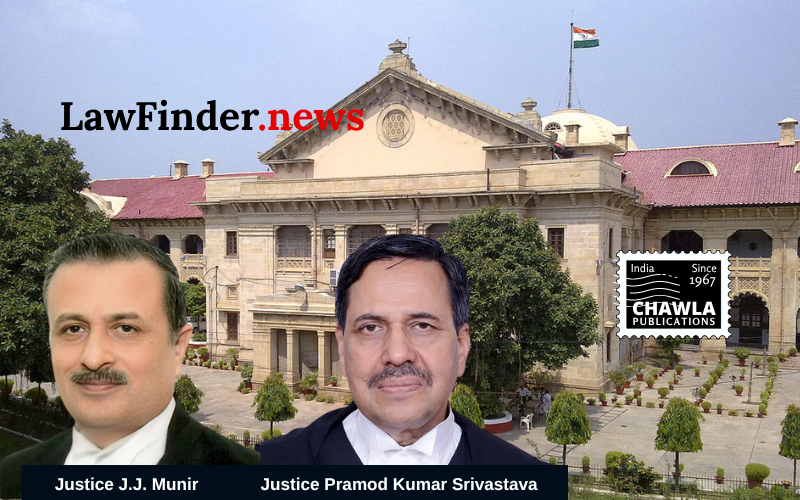Allahabad High Court Dismisses Writ Petition Seeking Quashing of FIR Against Afaq Ahmad. Court Upholds Investigation into Allegations of Inflammatory WhatsApp Messages Promoting Communal Disharmony
In a significant judgment, the Allahabad High Court has dismissed a writ petition filed by Afaq Ahmad, seeking the quashing of an FIR lodged against him under the Bharatiya Nyaya Sanhita, 2023, for allegedly sending inflammatory WhatsApp messages. The court, comprising Justices J.J. Munir and Pramod Kumar Srivastava, concluded that the FIR disclosed a prima facie case and that the investigation should proceed without interference.
The FIR, initiated by Sub-Inspector Prashant Singh, accuses Ahmad of sending messages that could potentially disturb communal harmony and promote enmity between religious communities. The messages, allegedly sent to multiple individuals in Chandpur, were deemed likely to incite feelings of enmity and ill-will, despite not explicitly discussing religious sentiments.
During the hearing, Ahmad's counsel, Mr. Syed Shahnawaz Shah, argued that the messages merely expressed resentment over the arrest of Ahmad's brother, Arif, and did not contain inflammatory content. Shah emphasized that the messages reflected Ahmad's faith in the judicial process and highlighted the damage caused to his family's reputation due to unfounded allegations.
However, the court, after examining the submissions, noted that the unsaid implications of the messages could lead a particular community to feel targeted. The bench stated that even if the messages did not overtly incite religious sentiments, they could still promote feelings of enmity and ill-will between communities, thereby warranting further investigation.
Rejecting the plea to quash the FIR, the court emphasized the need for a thorough investigation, asserting that the probe should not be impeded at such an early stage. The judgment underscores the judiciary's stance on maintaining communal harmony and the importance of addressing potential threats to societal peace.
The decision marks a crucial step in addressing the delicate balance between freedom of expression and the responsibility to maintain communal peace, highlighting the judiciary's role in navigating complex issues of law and order.
Bottom Line:
The act of sending a WhatsApp message that conveys an underlying and subtle message of targeting a particular community can prima facie attract provisions of Bharatiya Nyaya Sanhita, 2023, for promoting feelings of enmity, hatred, or ill-will between religious communities. Relief under Article 226 cannot be granted to interdict investigation at this stage.
Statutory provision(s): Article 226 of the Constitution of India, Sections 299, 353(3), 296, 352, 351(2), 123, 64(1), 318(4), 336(3) of Bharatiya Nyaya Sanhita, 2023, Section 3 of the Uttar Pradesh Prohibition of Unlawful Conversion of Religion Act, 2021.
Afaq Ahmad v. State of U.P., (Allahabad)(DB) : Law Finder Doc Id # 2791025




